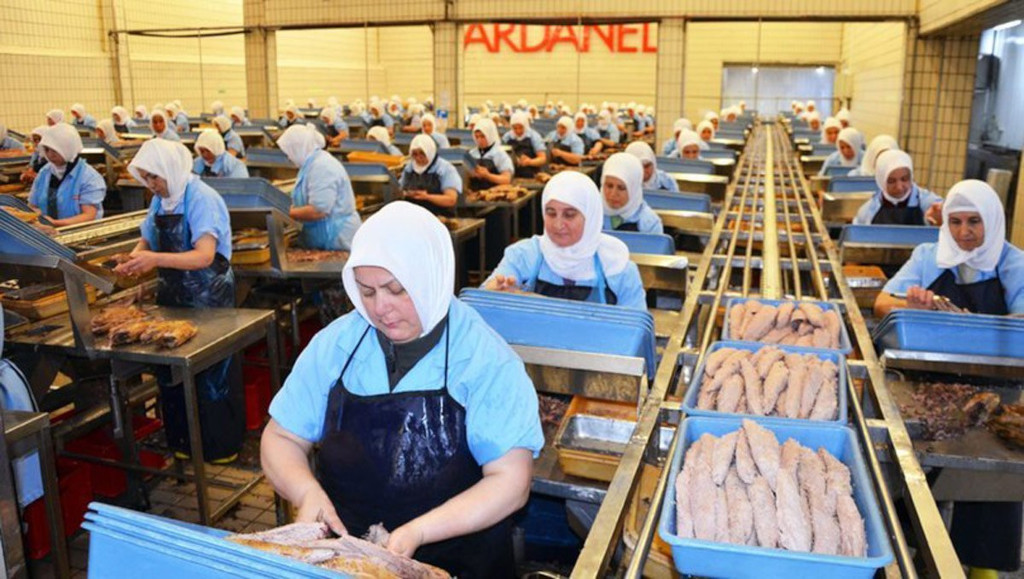A female worker revealed in an anonymous Twitter thread on November 6 the inhumane working conditions at Turkey’s Dardanel fish company, sparking outrage among unions and activists, the Stockholm Center for Freedom reported.
The worker said they were treated in an undignified manner and were humiliated and belittled by their superiors. “There are cameras in changing rooms and the toilets,” she said. “Our we lost our right to take a break during the COVID-19 pandemic in a so-called attempt to prevent the spread of the virus, but it still hasn’t been reinstated.”
Ben Dardanel Niyazi Önentaş holdingde çalışan bir kadın işçiyim. Sizlere fabrikanın çok kutsal gizliliğini ihlal ederek bir kadın olarak çalışırken yaşadığımız mobing ve hukuksuzluklardan bahsedeceğim.
— Dardanel işçileri dayanışması (@dardanelisciler) November 6, 2021
Dardanel was previously criticized for its dismal working conditions. The company produces canned fish such as tuna and implemented a “closed-circuit” work system during the pandemic. They adopted the system after 40 of their employees contracted the virus, and it means that the employees work during the day and stay in the factory’s quarantine dormitories at night. The system was put into place after production started slowing due to several workers being sent home with COVID-19.
More than 1,000 employees work together regardless of whether they are infected with COVID-19 or not and stay in the same dormitories without many preventative measures.
One of the issues the closed-circuit system has brought about is that the workers have to put in compulsory overtime of around 90 to 100 hours a month. They do not get paid for the overtime and risk losing their jobs if they refuse to work.
The worker added that their superiors urged them to work without allowing them any breathing time.
“Our bosses force us to work and are not ashamed to restrict our freedoms in the process,” she said. “They exert pressure on us to increase their profits.”
Criticizing insufficient safety precautions, the worker said they were not trained in the maintenance of hygiene or safety standards.
The worker also drew attention to the plight of Syrian, Kurdish and Romani workers who she claimed were not even insured. If the workers had an accident, they were sent home instead of to a doctor. She said the company knew these workers did not have the means to demand their rights and thus exploited them even more.
“The company knows they can just fire these workers without consequences. They prevent unionization by firing them after a maximum of four months so the workers do not get to know each other and create solidarity,” she said.
In an effort to curb solidarity the company also prevented workers from speaking with each other. Workers said that although they were prevented from socializing during the pandemic, paradoxically, they were made to work side-by-side and in close contact.
Pointing out that unions were ineffective in supporting their rights, the worker said union leaders made 10 times more money than workers and did not truly care about their suffering.
Turkey was named one of the world’s 10 worst countries among 149 in total for labor rights, in a report published in July by the International Trade Union Confederation (ITUC).
Turkey was categorized as a country where there was “no guarantee of labor rights,” meaning that while a country’s legislation may spell out certain rights, workers effectively have no access to these rights and are therefore exposed to autocratic regimes and unfair labor practices.



